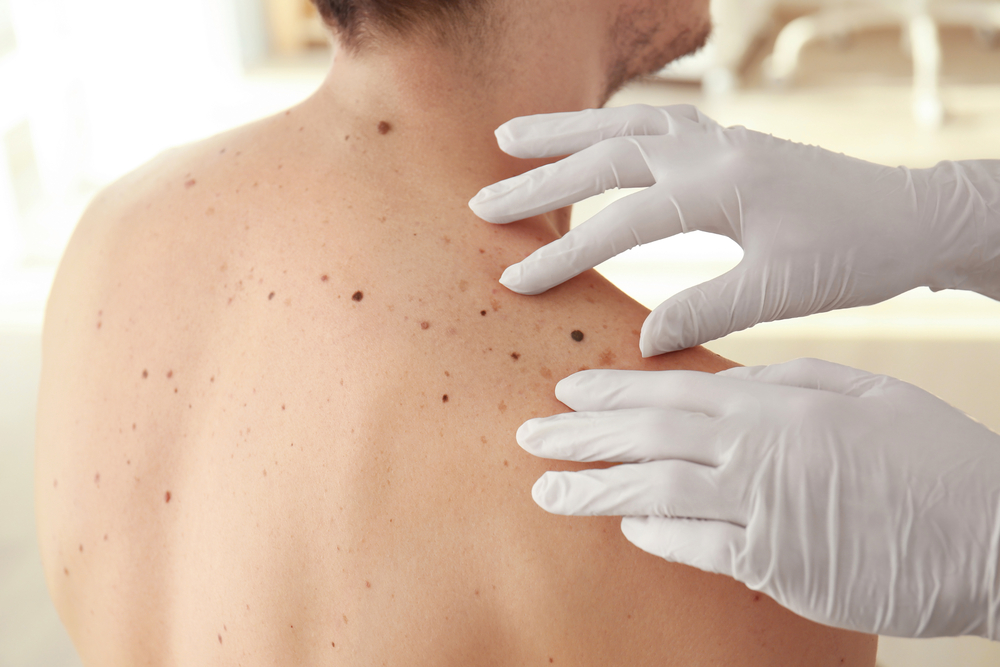Consult a specialized hair loss expert to help you with effective solutions and treatments.
Consult a specialized hair loss expert to help you with effective solutions and treatments.
Blog Article
Navigating Skin Cancer Therapy: The Crucial Duty of Mohs in Modern Dermatology Practices
Skin cancer cells, a complicated diagnosis, often leaves people coming to grips with various therapy alternatives. Amongst these, Mohs surgery stands as a sign in modern dermatology, renowned for its thorough technique to cancer removal and conservation of surrounding healthy and balanced tissue. This cutting-edge method assures not only premium cosmetic results but additionally offers instant results, relieving patient stress and anxiety. As we discover the complexities of this treatment, one will appreciate its crucial role in skin cancer cells treatment.
Comprehending Skin Cancer Cells: Types and Risks
Skin cancer cells, a possibly dangerous ailment, is much more common than several individuals understand. This condition, brought on by the unrestrained development of uncommon skin cells, mostly results from DNA damage because of exposure to the sunlight and ultraviolet (UV) light. There are 3 main kinds of skin cancer: Basal cell cancer, Squamous cell carcinoma, and Cancer malignancy. While the previous two are much less lethal and comprise the majority of identified instances, cancer malignancy is the most hazardous. It represents just concerning 1% of skin cancer situations yet triggers the vast majority of skin cancer cells fatalities - mohs surgery. Threat aspects consist of reasonable skin, history of sunburn, too much sunlight direct exposure, living at high altitudes or near the equator, having several moles, a household history of skin cancer cells, and damaged body immune system.
What Is Mohs Surgical treatment and Just How It's Revolutionizing Skin Cancer Cells Therapy
Regardless of the many treatments currently available for skin cancer, Mohs surgical procedure stands out as a groundbreaking and very effective service. Named after Frederic E. Mohs, the doctor who developed the procedure, Mohs surgical treatment is an accurate medical strategy made use of to deal with skin cancer cells. Throughout the procedure, thin layers of cancer-containing skin are considerably gotten rid of and analyzed up until only cancer-free cells continues to be. This technique allows the cosmetic surgeon to confirm that all cancer cells have actually been gotten rid of at the time of surgical procedure. This degree of accuracy, incorporated with the ability to spare as much healthy tissue as possible, is reinventing skin cancer cells treatment. Consequently, Mohs surgical treatment has ended up being a foundation of modern dermatology techniques.
The Benefits of Mohs Surgical Procedure Over Traditional Skin Cancer Cells Treatments
Building on the innovative nature of Mohs surgical treatment, it's vital to consider its various advantages over traditional skin cancer treatments. Unlike basic treatments, Mohs provides a higher treatment rate, usually reaching 99% for newbie treatments and 94% for reoccurring cancers. Additionally, it reduces best site damages to healthy skin, leading to less scarring and boosted aesthetic end results.
The Procedure of Mohs Surgery: What to Anticipate During the Process

Prospective Side Impacts and Post-Operative Treatment of Mohs Surgical Procedure
Going through Mohs surgical procedure, like any kind of various other operation, involves prospective side effects that individuals ought to know. Common adverse effects consist of discomfort, bruising, and swelling at the surgery site. Nonetheless, these are generally momentary and convenient with over-the-counter discomfort medication and ice packs. In uncommon situations, patients may experience infection, blood loss, or a sensitive reaction to the neighborhood anesthetic. Post-operative care is important to healing and lessening side results. This commonly includes maintaining the wound clean and dry, taking recommended medicines, and avoiding difficult tasks. People need to also attend all follow-up visits for injury treatment and monitoring. Sometimes, added treatments may be essential to ensure total elimination of the malignant cells. Abiding by these post-operative care guidelines can considerably boost Learn More Here recovery and have a peek at this site outcomes.
Final thought

Report this page